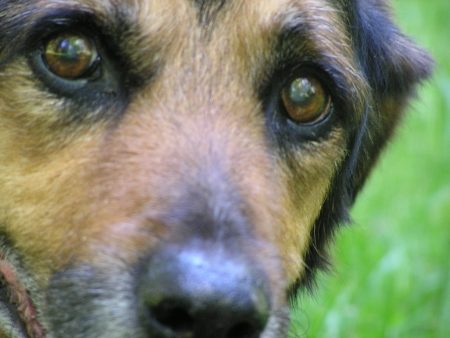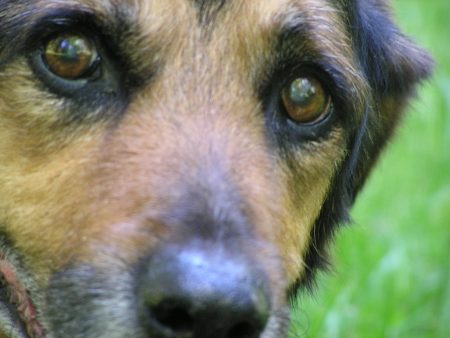

Risk
I’m a sucker for a pretty face. And so I stay far, far away from shelters, where I might otherwise be sorely tempted to fill my station wagon up with pooches- mellow hounds who have outlived their owners, Lab/Rottweiler mixes who look like they should be smoking Cubans, Chihuahua/terrier mixes with crazy eyebrows- it’s never-ending, and totally addictive. Even when I go to a shelter to help a client choose the right dog, I’m in peril of increasing the dog population in my own home. Is this how hoarding begins?
I can stay away from shelters, but I cannot avoid the road, where seemingly every week or two I find a stray dog wandering around like Oliver Twist, wondering where the heck his home has gone. Don’t they have GPS systems built into their noses? Do they need to jump fences and jaywalk like a native New Yorker? More often than not I am able to catch these gypsy dogs and get them back to their rightful owners, who upon seeing their wayward pets again usually turn into bowls of quavering Jello. The dogs usually lose it too. It’s a good feeling.
Sometimes I cannot find the owner. That’s the way is was with Flavio, my thirteen year-old shepherd/chow mix (an educated guess), who appeared in our yard one day. He could jump a six foot fence like a mule deer back then, making property boundaries meaningless. I spent months looking for his people, who I did not really want to find, as the dog had clearly been beaten silly for quite some time. I kept him, even though he was a behavioral mess. I took a chance, and, though it took all of my skills as a trainer, he turned out to be just fine.
But the biggest rescue risk I ever took would turn out to be the best decision of my life. Lou, the subject of my new memoir, Last Dog On The Hill: the Extraordinary Life of Lou (St. Martin’s Press, 2010), wasn’t really a stray, wasn’t lost, wasn’t mourned. He was a six month-old feral Rottweiler/shepherd mix, the offspring of guard dogs on a Mendocino, California marijuana grow. He and his mangy pack roamed the hills eating garbage and squirrels, dodging traffic, and evading pot shots from irate property owners tired of the pack tipping over their garbage cans at night. Chance led us to find each other that day in 1989; every logical fiber in me said DO NOT TAKE THIS TRAIN WRECK OF A DOG, but my heart said otherwise. Though a bit wild, infested and terribly ill, I risked it, and brought him home.
It only took about four thousand dollars worth of damage to my home before I managed to get wildman Lou under control and start training some civility into him. Eventually, he’d prove to be smarter, braver and more compassionate than any dog I have ever known- a real-life Rin Tin Tin, a true hero who changed my life and the lives of many others. He hadn’t come from a reputable breeder, hadn’t any papers, hadn’t even known human kindness before. He’d been the absolute worst possible choice at the time- an Eliza Doolittle with ticks and a penchant for squirrel meat. But I’d felt something in him, something grand; it made me take a chance.
I suppose what I’m driving at here it this; it’s not easy to drive by that stray by the side of the road, or ignore the doe-eyed mutt in the shelter, staring at you, smiling at you. It’s not easy, because there is something good going on there, something righteous and old. Dogs and people have been courting each other for thousands of years, seeking each other out, loving each other, taking risks, trusting that it could work.
Chimps may have thumbs, but it’s the dog who is closest to us in character and heart. It’s the dog who will risk her life to save yours, the dog who is keyed into your emotions and moods like no other animal on the planet. Of course it’s hard to pass by a dog in need- you sense his earnestness, and your own. And you know that the real risk is not your own; the real risk is hers. She knows the gravity of her situation, and that time is running thin. That dog risks everything, right there in the shelter or by the side of the road. When he looks you clean in the eye, you’d better know that it’s for real, that it’s dignified and honest. You’d better understand what’s on the table. It’s why we take chances. It’s why we love.
Join the newsletter and never miss out on dog content again!
"*" indicates required fields
By clicking the arrow, you agree to our web Terms of Use and Privacy & Cookie Policy. Easy unsubscribe links are provided in every email.